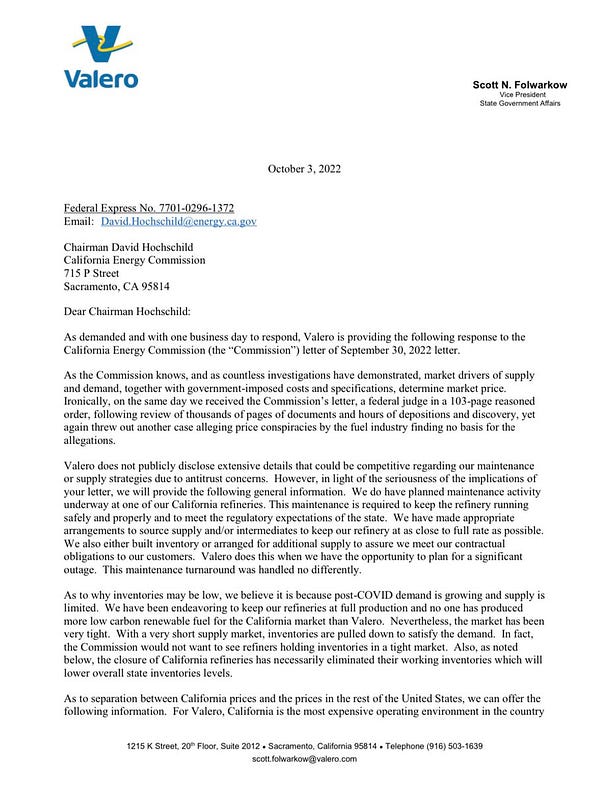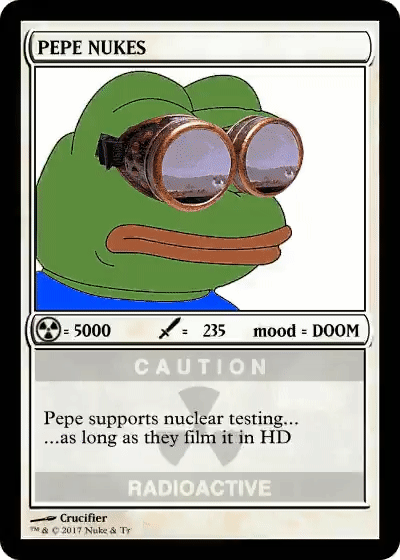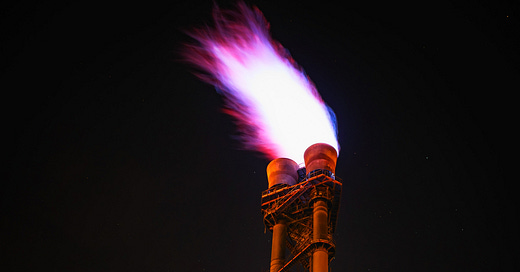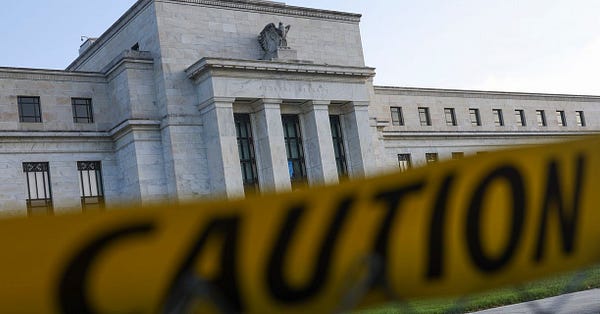A Not-So-Well-Oiled Machine
In defiance of the US, OPEC decided to cut oil production. Get ready for higher oil prices and more bad policy decisions.
How much pain does a developed, civilized society like Germany need to experience before they consider opening a physics textbook?
Doomberg
While the quote above refers to Germany specifically, it could also very well apply to most of the West.
Earlier this week, the Organization of the Petroleum Exporting Countries (OPEC) decided to cut its oil production quota by two million barrels per day. This number corresponds to about two percent of the global oil production. The reaction of the market was immediate: The price of oil went from $88 per barrel at the beginning of the week, to $98 at the close on Friday.
This cut occurs after the US has already depleted half of its Strategic Petroleum Reserve (SPR) over the past few months. The objective of the SPR releases was to suppress oil prices in the months leading to the midterm elections in the US (November 8). When it was created, however, the SPR was created to shield the US from oil supply disruptions, not to keep the oil price low for political gain.
The SPR is now at the lowest level it has been since 1984.


It turns out that Trump had the right idea back in 2020. He wanted to refill the SPR up to its maximum capacity at the bargain price of $24 per barrel. The price was depressed because of lockdowns and low global consumptions. He recognized a bargain when he saw one. But the proposal was killed by Democrats at the time. Now it would cost four times more to refill it.


At the national level, this situation is the result of a series of bad decisions.

What is the reaction of the White House? Doubling down on SPR releases. You can’t make this up.


But where things really went out of control was California. There, gas prices are at a record high and almost twice as high as in the rest of the country.


Taking a page out of Europe’s playbook, California decided to spend billions of dollars to stimulate demand for oil at a time when supply is constrained. Readers of this newsletter should know by now that this is the exact opposite of what one should do when a commodity is available in limited supply.

Who is to blame? The Governor of California is accusing “greedy” oil companies for the dire situation of the state.

But of course, it has nothing to do with oil companies and everything to do with California regulations and bad decisions taken by politicians.
The response by Valero is worth a read. In its letter, Valero explains the basics of supply and demand to the Chairman of the California Energy Commission and how California created the mess it is in.



There is one more step the state could take to tackle high gas prices, but Belarus is already ahead of California on this one: Make price increases illegal!

Politicians and Energy Markets

Markets
Two and a half years ago, everyone was a trader, everyone was an investor. The face of this mania was Dave Portnoy. At the time, when everything was going up, he even called Warren Buffet “washed up.” It’s now 2022 and the hype is definitely gone. Watch his journey in the short video below. A good illustration of what retail investors went through during the pandemic.
In this week’s edition of “Everyone Has an Opinion on Monetary Policy,” the United Nations asked the Fed to stop with the rate increases.
The reality is that the Fed is not done hiking. Not until all excess savings from the pandemic are wiped out. There is still $1 trillion to go.


Finally, I am sharing another very good article published by Arthur Hayes on central banks and how the Fed is the last central bank standing when it comes to tightening financial conditions. But it’s only a matter of time before it joins the other central banks in easing financial conditions again.









